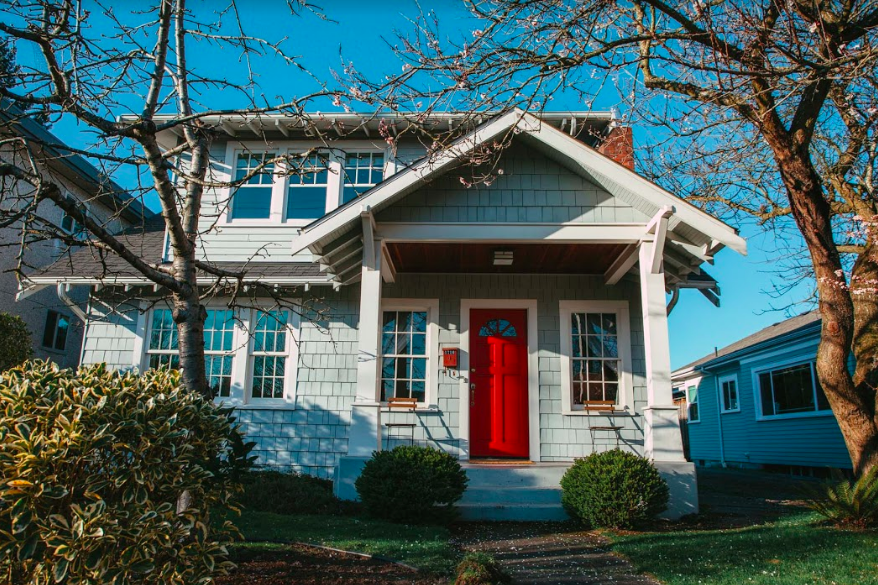The idea of flipping houses is increasingly popular for those who seek to turn a profit off of residential real estate.
“Flipping” is the term used when someone purchases a property in poor condition, or one that is incredibly dated, and fixes it up to resell it for a substantial profit. In fact, you’ve probably seen one of the several reality television shows that follow people through the house-flipping process.
However, the truth is rarely as flattering as it seems in a well-edited “reality” TV program. More often than not, you can end up spending just as much money flipping a home as you would purchasing a typical house. You have to find properties that need work and are being offered at a low or competitive price.
Since fewer homes are available on the market, the best fixer-uppers will likely get snatched up very quickly. In order to move quickly on a home you believe you can flip for a profit, you need to have cash in hand or financing already lined up. Otherwise, you can count on someone else making a better offer on the property.
Traditional Bank Financing Is an Option
If you have a successful history of flipping homes, verifiable income, and a solid credit score, you may be able to secure bank financing in the form of a mortgage. Lenders are less likely to offer their assistance in your house-flipping journey if you’re inexperienced — they’ll want to see a good track record of flipping at least one or two other homes for profit.
It is important to realize, however, that banks typically charge more for financing on second properties and investment homes than they do for primary residences. You will need substantial money up front for a down payment, and in some cases, you could get stuck with a prepayment penalty for paying off the mortgage early.
[Related: How to Finance a Home Remodel]
Source a Hard Money Loan
Does the term “hard money loan” sound unfamiliar? You’re not alone. These financial products are typically used by real estate developers and house flippers, so if this is your first time flipping a home, you may not know this process.
Hard money loans are a great option for people without great credit scores who need to fix up a property to sell. These loans can help you purchase a home without any of your own money up front, but that convenience comes at a cost.
Typically, a hard money loan lasts for a year or less with high 12% to 18% interest rates and two to five points. That means you will only have a year or so to fix the home up and get it sold. At the end of the loan term, you’ll face a massive balloon payment.
[Related: How to Keep Your Home in Good Shape Year-Round]
Lenders will determine the amount you can borrow based on an estimate of what the home could sell for after it gets renovated. If the local market experiences a sudden downturn, you may not be able to sell it for as much as you borrowed. To offset this risk, lenders generally limit financed amounts to 70% of the potential price after renovations.
One positive point of hard money loans: unlike with conventional mortgages, you don’t have to pay at closing — you are able to wait until the house is sold.
Seek Out Personal Investors or Private Lenders
In some cases, you could secure short-term loans from friends and family members that amount to the price of the home when pooled together.
In order to do this the right way, every loan should be in writing with payment amounts, repayment periods, and interest rates set in stone before you accept any money.
For first-time flippers, this could be a great option. The downside is that if you fail, you could damage the finances of people close to you and also lose their respect and trust.
[Related: Understanding Your Home Loan Options]
Private lenders are sometimes an option for those wanting to purchase a home to flip. The downside here is both cost in fees, and the fact that these lenders often require a history of successful house-flipping.
Lenders who are willing to work with inexperienced house-flippers exist, but they may require higher interest rates and fees. For example, Investopedia reports that:
- If you’ve completed one flip in the past two years, you can expect an origination fee of 3.5% and an interest rate of 12%.
- If you’ve flipped two to four houses, the fee would be around 3% with an 11% interest rate.
- An experienced house-flipper with five or more completed flips can expect an origination fee of 2% and an interest rate of 9.99%.
[Related: 15 Essential Questions to Ask When Buying a Home]
Using Your Home Equity to Buy a Fixer-Upper
If you have established a substantial amount of equity in your primary residence, you may want to consider taking out a home equity loan or line of credit.
Typically, these loans offer competitive interest rates and fewer fees than other kinds of loans. You can pull out only what money you need for the purchase and repairs, and repay it as soon as possible.
The obvious downside here is that if there’s an issue, your home is the collateral on the home equity loan. If you can’t sell the home for what you invested in it, you could spend years trying to repay the amount of equity you removed from your own home to make the purchase.
[Related: Guide to Buying a Home in Seattle]
If you’re considering purchasing a home to flip for a profit, Seattle Mortgage Planners can help by answering any questions you might have along the way. Our experienced mortgage planners and financial experts can provide guidance on your house-flipping journey.

